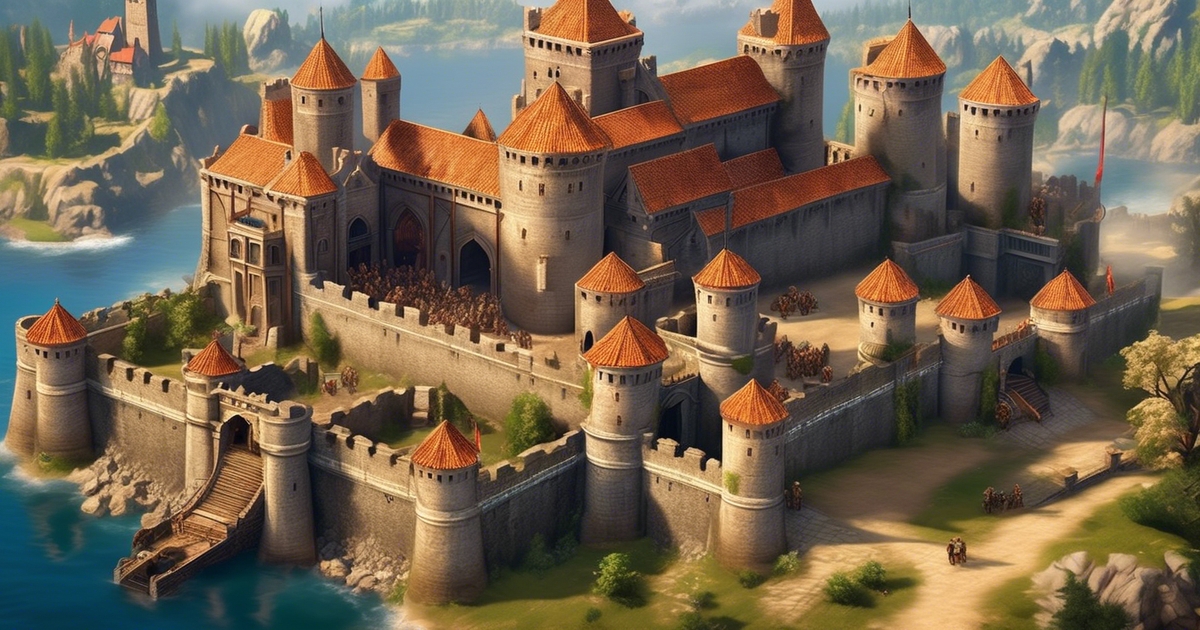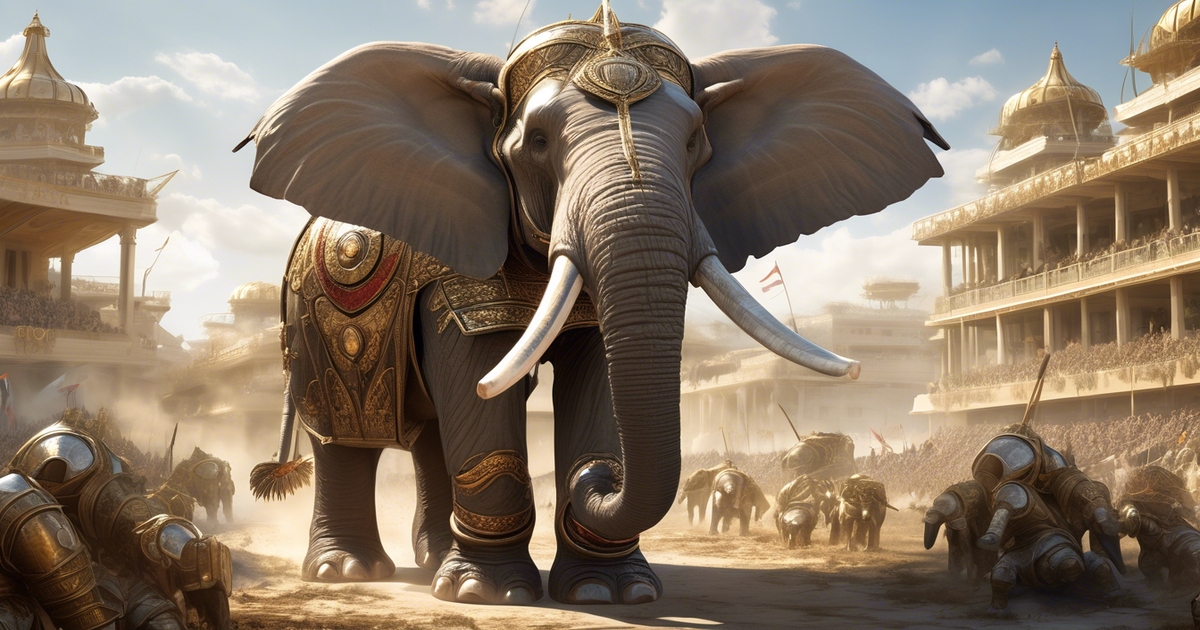What are Strategy Games: The Ultimate Guide

- The Evolution of Strategy Games
- Characteristics of Strategy Games
- Strategy Games vs. Tactical Games
- Real-time vs Turn-based Strategy Games
- Most Popular Strategy Games (Turn-Based)
- Most Popular Strategy Games (Real-Time)
- Conclusion
- Frequently Asked Questions
Did you know that strategy games are not only about fun, but they also enhance critical thinking and decision-making skills? These games offer a wide array of gameplay experiences, involving long-term planning and resource management.
Whether it’s computer or mobile-based, strategy games challenge players to think strategically and consider abstract concepts. With the diverse range of strategic considerations involved, these games provide an immersive experience that goes beyond mere entertainment.
In this article, we’ll go over everything there is to know about strategy games.
The Evolution of Strategy Games
From Board Games to Digital Simulations
Strategy games have come a long way from being played on physical boards to now existing as complex digital simulations. In the past, strategy games were primarily board games like Chess and Risk, but with advancements in technology, they have transformed into immersive digital experiences.
Influence of Technology
The evolution of technology has played a pivotal role in shaping the landscape of strategy games. With the advent of powerful computers and gaming consoles, developers can create intricate worlds and scenarios that were previously unimaginable. This has led to an increase in the complexity and realism of strategy games.
Inspiration from Historical Events
Many strategy game narratives are inspired by historical events, particularly wars. These games often allow players to step into the shoes of famous generals or leaders from different eras, experiencing the challenges and decision-making processes they faced during critical moments in history.
Characteristics of Strategy Games
Emphasis on Strategic, Tactical, and Logistical Challenges
Strategy games are centered around the challenges of strategy, tactics, and logistics. Players must carefully plan their moves and consider various factors to outmaneuver opponents or achieve specific goals.
Control of Units or Territories for Objectives
In these games, players often have to control units or territories to accomplish particular objectives. This can involve managing resources, building structures, or leading armies to victory through calculated decision-making.
Crucial Role of Adaptability and Foresight
Adaptability and foresight play pivotal roles in strategy games. Players need to adjust their strategies based on changing circumstances and anticipate future events to stay ahead in the game.
Strategy Games vs. Tactical Games
Focus on Long-term Planning
Strategy games revolve around long-term planning and achieving overall objectives. Players need to think ahead, devise plans, and make decisions that will impact the game’s outcome in the long run.
Emphasis on Short-term Decision-making
Tactical games, on the other hand, emphasize short-term decision-making and direct combat scenarios. These games require players to react quickly to immediate challenges and adapt their strategies based on the evolving battlefield.
Different Approaches to Problem-solving
Both strategy and tactical games demand different approaches to problem-solving. Strategy games encourage players to consider various possibilities and consequences before making a move, while tactical games prompt quick thinking and adaptability in dynamic situations.
In strategy games like “Civilization VI,” players strategically manage resources, plan city developments, and engage in diplomacy with other civilizations for long-term success. On the flip side, tactical games such as “XCOM 2” require swift decision-making during intense combat encounters where every move can determine victory or defeat.
Understanding the distinctions between these genres enables gamers to choose experiences that align with their preferred style of gameplay. Whether it’s meticulously planning grand conquests or swiftly maneuvering troops in battle, both genres offer unique challenges that cater to diverse problem-solving preferences.
Real-time vs Turn-based Strategy Games
Real-time Strategy Games
Real-time strategy games, often abbreviated as RTS games, require players to make quick decisions and manage multiple tasks simultaneously. These games demand rapid thinking and the ability to adapt swiftly to changing circumstances. For instance, in the “Total War” series, players need to oversee their empire’s economy, manage armies, and engage in real-time battles.
Turn-based Strategy Games
Turn-based strategy (TBS) games allow players to carefully plan their moves without the pressure of real-time decision-making. This genre provides a more thoughtful and strategic experience as players have the time to analyze their options thoroughly. In TBS games like “Civilization VI,” each player takes turns to develop their civilization, negotiate with other leaders, and engage in tactical warfare.
Here’s a quick table comparing the two types of strategy games:
| Aspect | Real-time Strategy Games | Turn-based Strategy Games |
|---|---|---|
| Pace of Gameplay | Fast-paced | Slower-paced |
| Decision Making | Quick, on-the-fly | More thoughtful, strategic |
| Multiplayer Options | Often available | Often available |
| Complexity | Often more complex | Can be equally complex |
| Learning Curve | Steeper | Easier for beginners |
| Resource Management | Constantly ongoing | Turn-based, more planned |
| Combat Resolution | Immediate | Turn-based, calculated |
| Player Engagement | Requires constant attention | Allows for more strategic thinking |
Unique Challenges and Gameplay Experiences
Both real-time and turn-based strategy games offer distinct challenges and gameplay experiences. Real-time strategy tests a player’s ability to think on their feet while managing resources efficiently during intense battles or simulations. On the other hand, turn-based strategy emphasizes long-term planning, resource management, diplomacy, and engaging with artificial intelligence or other players in multiplayer or massively multiplayer settings.
Most Popular Strategy Games (Turn-Based)
1. Civilization VI
Civilization VI is a classic 4X game that follows the principles of explore, expand, exploit, and exterminate. In this game, you guide a civilization from its humble beginnings to global domination. You’ll need to manage resources, engage in diplomacy, and lead your people through various eras.

2. XCOM 2
XCOM 2 is an intense turn-based tactics game where you take command of a squad of soldiers fighting against an alien invasion. The game requires strategic planning and decision-making as you navigate through challenging missions while facing off against formidable extraterrestrial foes.

3. Crusader Kings III
Crusader Kings III offers a sprawling medieval dynasty simulation experience. As a player, you must manage a noble house across generations, forging alliances, plotting coups, and securing your legacy. The game presents intricate political dynamics and complex family interactions that influence the fate of your dynasty.

Most Popular Strategy Games (Real-Time)
1. StarCraft II
StarCraft II stands out as a high-octane game that demands strategic planning in the midst of intense battles. With three unique races vying for control, players must adapt their tactics to outmaneuver opponents in real-time.

2. Age of Empires IV
Age of Empires IV offers a historical twist, allowing players to construct and oversee empires throughout different eras. It’s not just about military might; resource management and diplomatic relations play crucial roles in this real-time strategy masterpiece.

3. Total War: Warhammer III
Total War: Warhammer III takes the genre into a fantastical realm, combining grand strategy with mythical creatures and legendary heroes. The game’s scale is monumental, with massive armies clashing amidst breathtaking landscapes filled with magical beings.

Conclusion
So, there you have it! Strategy games have come a long way, evolving into complex and engaging experiences that challenge your intellect and decision-making skills. Whether you prefer the methodical pace of turn-based games or the adrenaline rush of real-time strategy, there’s a game out there for you. The characteristics and differences we’ve explored shed light on the diverse world of strategy gaming, offering something for every type of player.
Now that you understand the intricacies of strategy games, why not dive into one yourself? Whether you’re a seasoned strategist or a newcomer to the genre, there’s always more to explore and master. So grab your mouse or controller, rally your troops, and embark on your next strategic adventure!
Frequently Asked Questions
What are strategy games?
Strategy games are a genre of video games that require players to make decisions and use tactics to achieve specific objectives. These games often involve resource management, planning, and critical thinking skills.
How do strategy games differ from tactical games?
Strategy games focus on long-term planning and decision-making, while tactical games emphasize immediate actions and short-term strategies. In strategy games, players often manage resources and make high-level decisions, whereas tactical games require quick thinking and precise maneuvers in combat situations.
What are the characteristics of strategy games?
Characteristics of strategy games include complex decision-making, long-term planning, resource management, and often a focus on warfare or empire-building. These games challenge players to think critically and strategically to outmaneuver opponents or achieve specific goals.
What is the difference between real-time and turn-based strategy games?
Real-time strategy (RTS) games unfold continuously without pausing for turns, requiring quick thinking and multitasking. Turn-based strategy (TBS) games proceed in sequential turns where players take their time to plan moves carefully before executing them.
What are some popular examples of turn-based strategy games?
Popular turn-based strategy (TBS) titles include Civilization VI, XCOM 2, and Fire Emblem: Three Houses. These games offer deep strategic gameplay with a focus on careful planning and decision-making within a structured turn-based framework.
